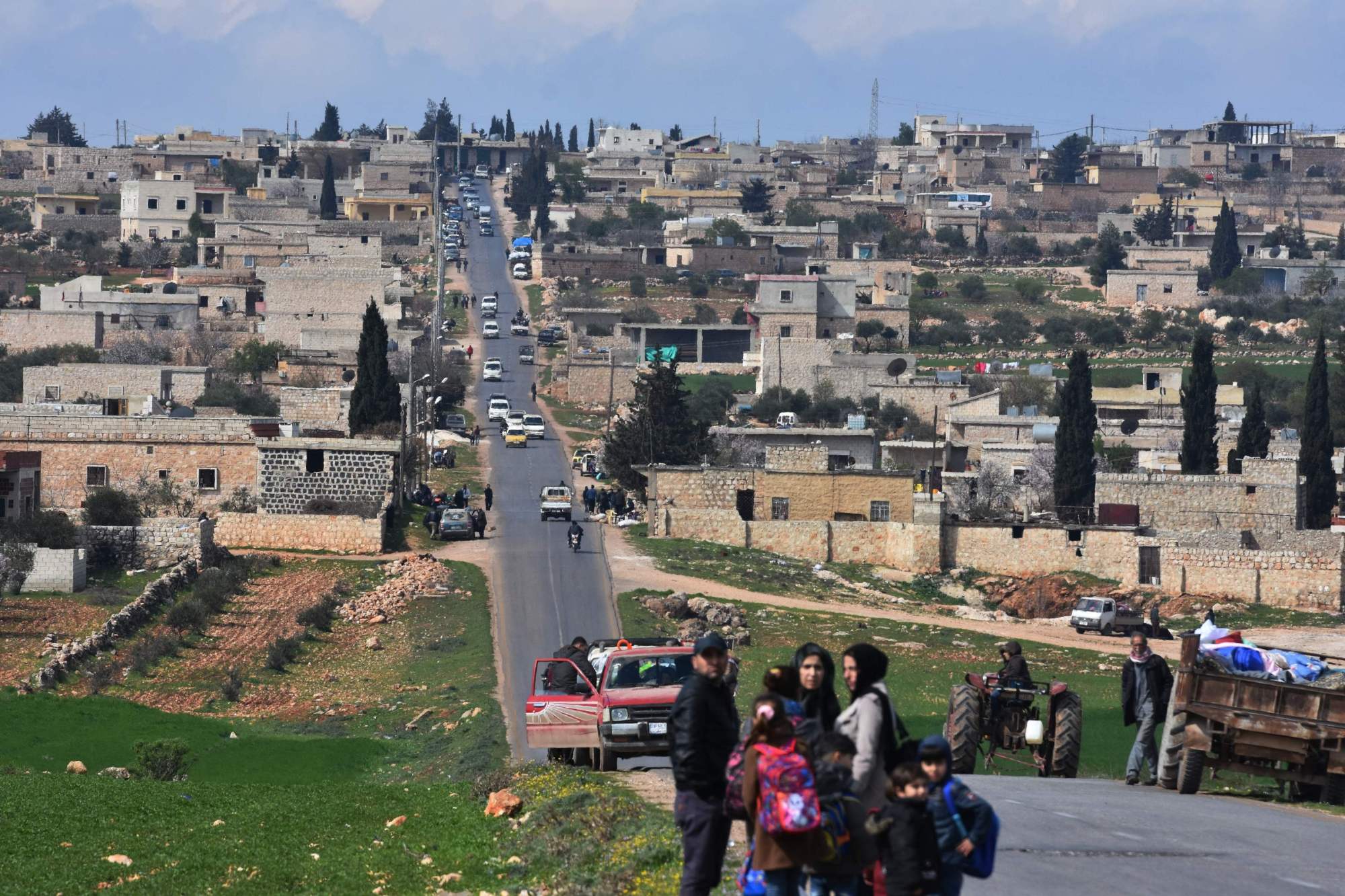Syria’s Afrin Braces for Tough Fight as Turkey Encircles Town
With Turkish-led forces nearly surrounding Syria’s Afrin city, some panicked residents are attempting to flee, others are stocking food fearing a siege, and Kurdish fighters are digging in for a tough fight.
Since January 20, Ankara and allied Syrian rebels have pressed an air and ground offensive that has brought them to the edges of Afrin, held by the Kurdish People’s Protection Units (YPG).
Already overwhelmed by an influx of displaced families that have strained water and electricity networks, residents of Afrin are bracing for what’s next. “We’re afraid of what will happen if the Turks enter Afrin,” says Almas Bakr, 23, who took refuge in the city from a heavily shelled border area. “Our hearts are crying — Afrin doesn’t deserve this.”
The urban center is now home to around 350,000 people after its population swelled with thousands fleeing their homes since the start of the assault.
Turkish President Recep Tayyip Erdogan has said he hopes the city will be encircled within hours. The single road linking it to the rest of the northwestern region of the same name is coming under heavy fire.
Hundreds have tried to flee, with cars and buses piled high with rugs, crates, and suitcases lining up to leave the town — to no avail. Inside, people are rushing to purchase non-perishable food, preparing for the possibility of a Turkish siege of the city.
Water has already been cut for more than a week and electricity shortages have been rampant since pro-Ankara forces took control of a nearby dam that provides some hydroelectric power to the town.
Stocking rice, baby milk
Women with plastic jerrycans could be seen gathering on one Afrin thoroughfare this week to fill them from a water truck. The United Nations’ humanitarian coordination office (OCHA) warned Tuesday that residents are relying on six boreholes whose unchlorinated water is putting civilians at risk of contracting waterborne diseases.
Desperate to gather more food for her family, Midiya Mohammad, 20, ventures out of a cellar where she has been taking shelter. “We have stocked up on rice, sugar, tinned food, baby milk, and medicines,” says the young woman, who escaped the battered town of Jandairis, which has since been captured by Turkish forces. “We’re preparing ourselves” for a possible siege, says Mohammad.
The city has struggled to cope with the influx of displaced families, who have taken shelter in basements, unfinished buildings, and even vans and trucks. Sultana, 57, is living with several other families in a building under construction, without water or electricity.
“They took our homes and destroyed them,” says the displaced woman from the area of Rajo, to the northwest. “What else do they want to take? Our chickens? Our children’s diapers?”
Only one U.N. convoy has entered Afrin since the assault began, distributing aid to 50,000 people in early March. Heve Mustafa, a co-chair of Afrin’s executive council, says authorities are struggling to keep up with growing needs.
‘We fear a massacre’
“The humanitarian situation is disastrous despite our efforts,” she says. The town’s hospital is short on staff, according to Mustafa, and available medical equipment is not enough for the wounded streaming in.
“Sometimes people die from the lack of medical supplies,” she adds. According to the Syrian Observatory for Human Rights, a monitoring group, more than 200 civilians have been killed in the offensive.
Turkey rejects such claims and says it is doing all it can to avoid civilian casualties. YPG media advisor Rezan Hedo tells AFP: “We fear a massacre if the Turkish forces enter the city.”
“The local administration has not been able to deal with the crisis, perhaps because of the lack of resources or because it doesn’t have enough experience,” he says. Turkish forces outnumber YPG fighters, are better armed and have air superiority.
“What the YPG has done over the past 50 days has been notable, but in the end, they are young men — they are not Jackie Chan,” Hedo adds.
The YPG has spearheaded a U.S.-backed alliance that kicked out Islamic State group jihadists from large parts of Syria, but hundreds of fighters have since abandoned that front to defend Afrin. Some pro-regime militiamen have even joined forces with the YPG, with Turkey bombing their positions, too.
Kurdish fighters are now reinforcing the city’s defenses, erecting new checkpoints all around Afrin. A Kurdish military source told AFP that rocket systems have also been set up as makeshift air defense capabilities against Turkish planes.
Top YPG official Redur Khalil pledged to put up fierce resistance. “The consequences for (Turkey) will be disastrous and costly,” according to Khalil.
Inside the city, Ali, 28, a construction worker who lives off donations of water and food, strikes a defiant tone. “We won’t leave Afrin except as corpses,” he says.




Comments are closed.